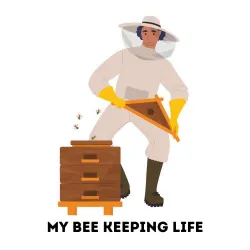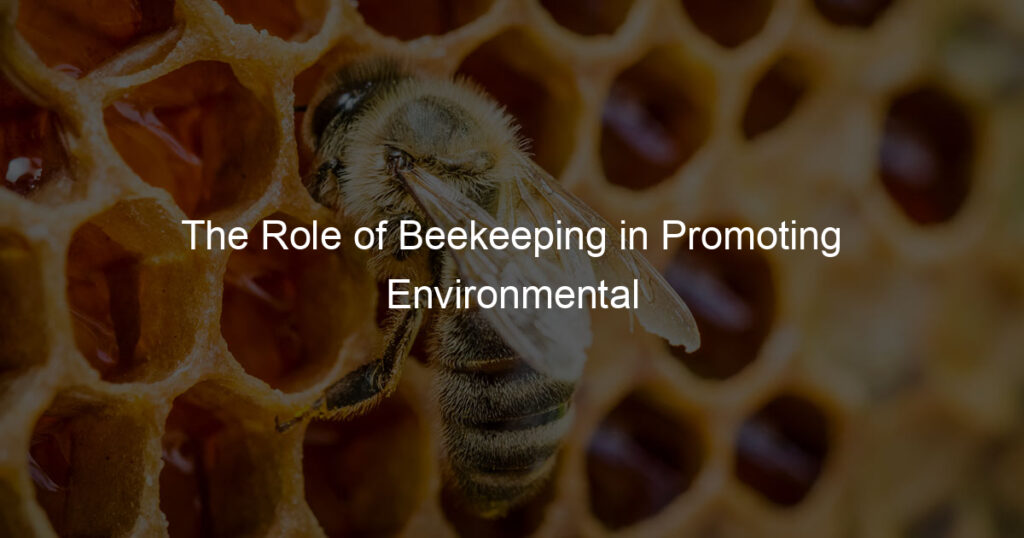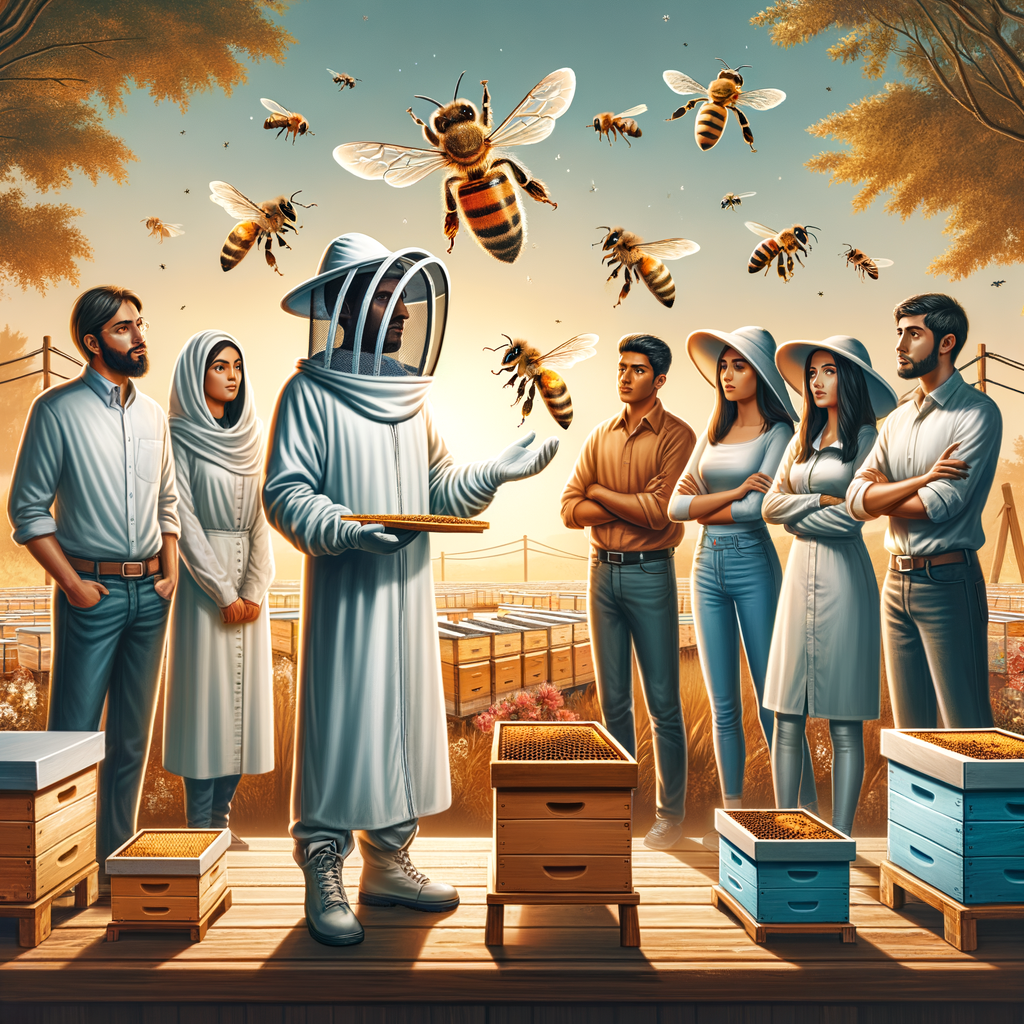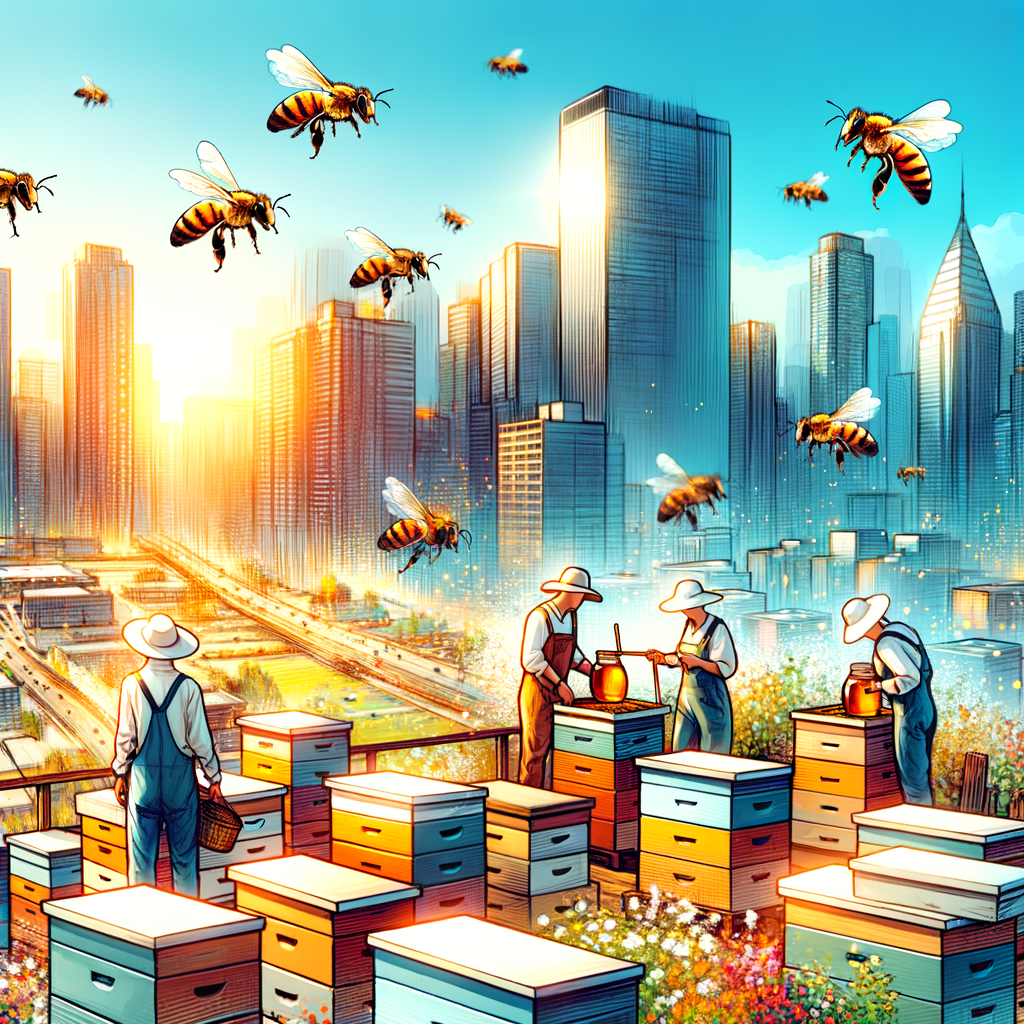Urban beekeeping is a growing trend that is gaining popularity for its potential to promote environmental sustainability in cities. By providing a natural way to pollinate plants and produce honey, beekeeping can help urban areas become more self-sufficient and reduce their reliance on outside sources.
In addition, keeping bees can help to green city neighborhoods and create valuable habitats for other wildlife. If you’re interested in doing your part to support urban sustainability, read on to learn more about the role of beekeeping in promoting environmental sustainability in cities!
How do bees relate to sustainability?
Bees are critical to having a sustainable environment as they help plants pollinate and reproduce. Without this critical relationship between bees and plants, there could be a loss of important species that are used for food, the natural habitats of many animals, and therefore biodiversity.
Bees play an integral role in keeping a sustainable environment alive and thriving, not just for our benefit but also for future generations. If we take steps now to increase sustainability practices, such as optimizing the use of water, minimizing environmental contamination, promote organic farming and gardening- these will directly lead to healthier and better-protected bee populations which can in turn help preserve the ecosystem.
Why are bees important to the environment?
Bees are a crucial part of our environment, for without them we’d be in real trouble. Not only do bees pollinate the crops that feed us, but they also help to boost biodiversity and keep other insects and animals in balance.
Their hard work also helps to improve soil fertility and maintain healthy ecosystems, by helping the natural process of dispersing seeds across the landscape. In other words, without bees, our planet would be much poorer from an ecological standpoint, not just about food production.
Bees are gentle creatures too, so it’s important we take good care of them and support their continued health in whatever ways we can.
How does bee impact the environment?
The environment is forever changed by the presence of bees. They are an important part of pollination, allowing many plant species to reproduce and spread their populations.
This in turn helps maintain biodiversity within an ecosystem, which is essential for its health and stability. Furthermore, bees also produce honey, which has a range of medicinal properties and has been used in traditional wellness practices for thousands of years.
As such, they provide a valuable resource that not only can help people in terms of improving their overall health and well-being but also helps to support beekeepers and those involved in harvesting their honey. Ultimately, the impact of bees on the environment cannot be understated as they play a vitally important role in maintaining the delicate balance between plants, animals, and humans.
What is the contribution of beekeeping to sustainable development goals?
Beekeeping is an important tool for aiding sustainable development goals due to its role as a natural pollinator. Not only can honey be harvested and traded as a marketable commodity, but also the importance of bees to the farming sector cannot be understated.
Bees help to pollinate and support the fertility of various types of crops, meaning that they are a key factor in ensuring food security. Additionally, beekeeping can often bring in supplemental income to farmers, enabling them to stay afloat during times of economic difficulty.
Understanding how crucial bees are to our global ecosystem is paramount and beekeeping offers a way for all of us to pitch in and help out. With creative small-scale solutions, the collective effort can make all the difference towards achieving our global sustainability targets, saving populations and businesses from disaster.
Why bees are important how do they help society and maintain balance in our environment?
Bees are astounding creatures; they are key to our environment and the health of the human community. Their intricate and vital role in pollinating plants, ranging from flowers to crops, benefits us greatly by ensuring our food security. However, bees do so much more than just pollinate.
They produce wax, propolis (beeswax-like secretion), honey, and royal jelly—all ingredients which can be used for a variety of purposes such as cosmetics, wood finishings, and providing natural supplements. In addition to the quality products they provide us with, bees offer surefire pest-control services which decrease our need for harmful chemicals and pesticides.
With bees around, we’re able to maintain a balance between people/domesticated animals/wildlife, and the environment. Without them, things would look very different indeed!
The Bottom Line
In conclusion, the role of beekeeping in promoting environmental sustainability in urban areas is essential and essential. Beekeeping can provide numerous benefits to cities, from the pollination of crops to honey production for local businesses. The bees also create an added natural beauty that brings joy and comfort to visitors and locals alike.
Additionally, the bees can help by contributing their unique knowledge of the environment that can assist in regulating pests and disease control, helping us better manage our ecosystems.
Despite these advantages, though, beekeepers also need to be aware of its implications on the health of people, animals, and plants. Knowledge of best practices must be shared so that beekeepers know how to properly maintain their hives while protecting their health. With a little effort, beekeeping is not just a nuisance but a worthwhile endeavor that can aid both our environment and economy at the same time.








